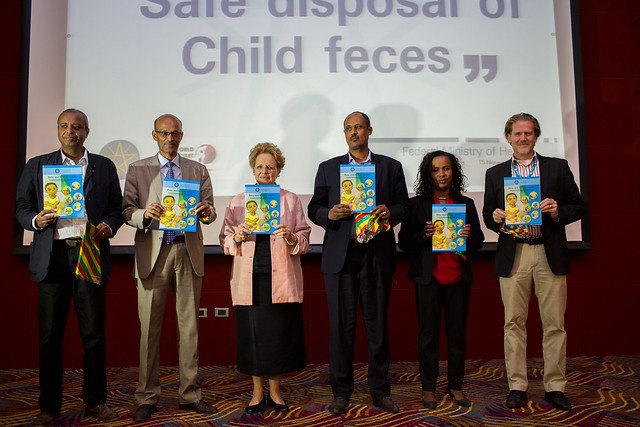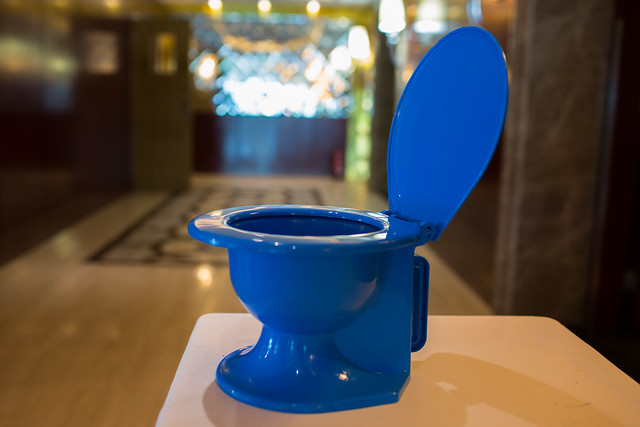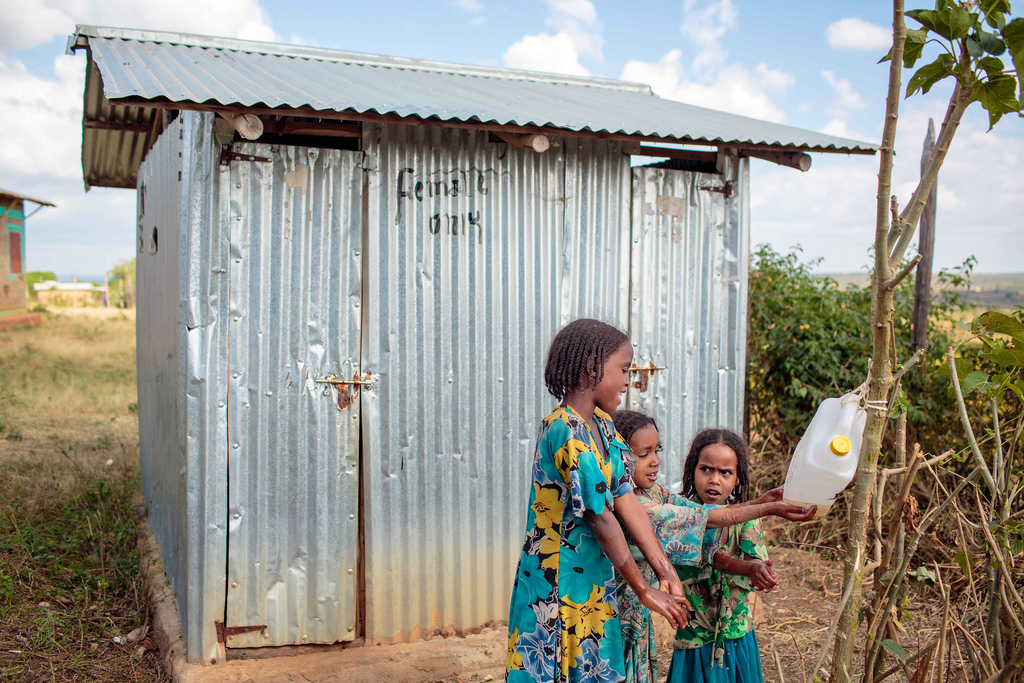Addis Ababa, 15 November 2017 – Today, Ethiopia celebrated World Toilet Day by holding a half-day workshop with the theme “Safe Disposal of Child Faeces.”
At the workshop, the national ‘Baby WASH’ strategy, which focuses on hygiene of children under three years, was endorsed by the Federal Ministry of Health. The strategy includes safe disposal of child faeces, providing protective environments through play mats and similar measures as well as prevention of soil transmitted helminths. The strategy will be implemented alongside regular safe sanitation and hygiene practices which are already being promoted by health extension workers.

In his statement, H.E Dr Kebede Worku, State Minister of Health said, “In Ethiopia, there is a common misconception that children’s faeces are not harmful while evidence shows otherwise. The current sanitation and hygiene promotion efforts, at times, overlook safe disposal of children’s faeces. In addition, most toilets are not designed keeping children’s special needs in mind. Hence, I am proud to endorse the Baby WASH manual today which was developed by the Federal Ministry of Health with the support of UNICEF and other partners in order to ensure a healthy environment for children’s growth and development especially those under three years of age.”
Ms Gillian Mellsop, UNICEF Representative to Ethiopia on her part said, “UNICEF is pleased to support the Ministry of Health in preparing these excellent guidelines on Baby WASH. We know that a contaminated environment harms infants and young children and puts them at risk of increased child mortality and stunting. Together, we have to ensure that parents and guardians, teachers and community leaders are aware of the importance of Baby WASH.”
According to the Knowledge, Attitude and Practice (KAP) baseline survey on Water, Sanitation, and Hygiene carried out in eight regions of Ethiopia, there is a general misconception about child faeces disposal. The survey showed that a lack of knowledge on the health risk related to child faeces is a key factor behind poor hygiene practices in faeces disposal. According to the survey, only half (49 per cent) of women knew that child faeces are dangerous to health. Misconception is higher among rural pastoralist women where only 39 per cent said child faeces are dangerous as compared with 50 per cent among rural non-pastoralist women and 54 per cent of women in urban areas.

A strong early childhood foundation, which includes a safe and hygienic environment coupled with adequate nutrition as well as nurturing parenting and stimulation for optimal brain development, is critical to ensure toddlers can develop to their full potential. This will facilitate a smooth transition to primary school and a better chance of successfully completing basic education. Therefore, investing in early childhood development through improved hygiene practices and environments is one of the most critical and cost‑effective ways to improve a child’s future health, education and productivity.
The Ministry of Health and UNICEF urge citizens, parents, teachers, health workers, policy makers and government officials to play their role in making sure that every child receives the benefits of Water, Sanitation and Hygiene (WASH) in their homes, communities, schools and health facilities.


A wonderful initiative . This is very useful for toddlers toilet practice and safe disposal .
LikeLike